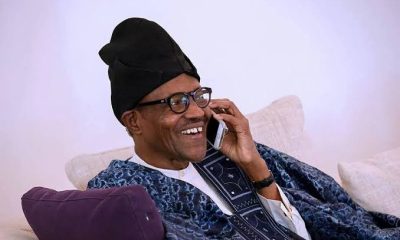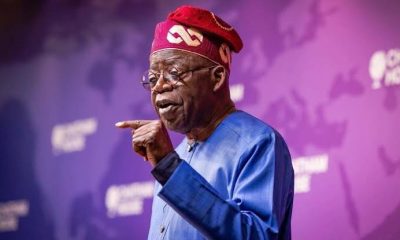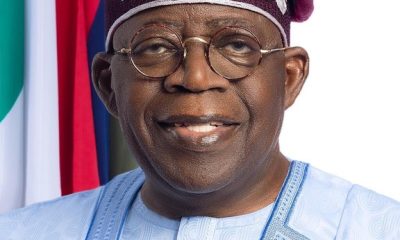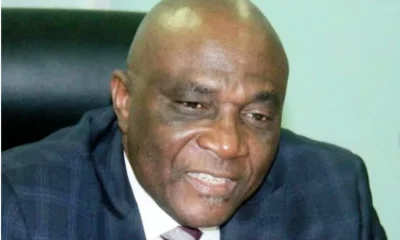News
President Tinubu mourns Nigerian envoy to France
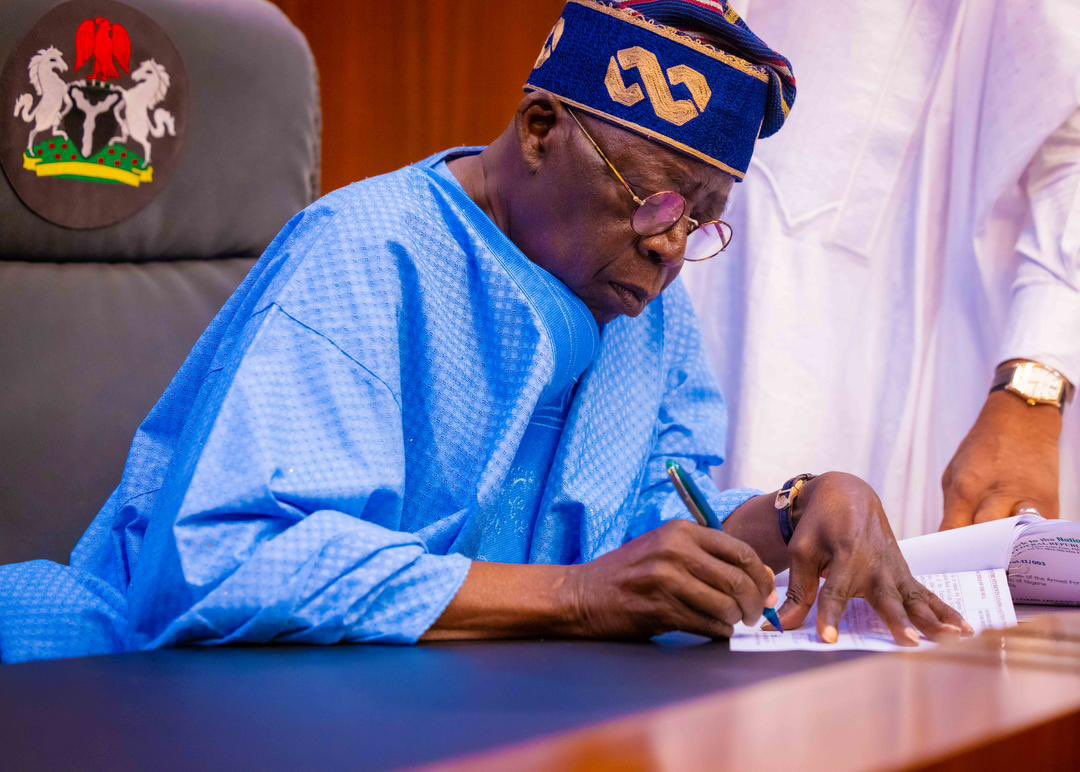
President Bola Tinubu is profoundly saddened by the news of the passing of Nigeria’s Ambassador to France, Kayode Laro.
He extends his deepest condolences to deceased family, the diplomatic community, as well as the Government and people of Kwara.
The president recognises Amb. Laro’s tireless dedication in fostering mutually-beneficial diplomatic ties between Nigeria and France during his tenure.
He noted that his commitment to diplomacy and the impactful role he played in ensuring the success of the president’s visit to France in June this year.
The visit was the president’s first foreign trip following his assumption of office in May 29.
Laro has devoted himself fully to his duties during 35 illustrious years in service as a Nigerian diplomat, spanning from 1983 to 2018.
Tinubu remembered the late diplomat’s profound grasp of geo-political intricacies and how he aptly harnessed his wealth of skill and experience in multilateral diplomacy to advance worldwide peace, security and development.
The president affirms that the appointment of the Fellow of the National Defence College as an Ambassador in July 2020 to represent Nigeria in France was in recognition of his widely respected expertise and dedication.
“Our nation has lost an exemplary diplomat. I will always hold cherished memories of my interactions with him during my attendance at the New Global Financial Pact Summit in France this June.
“His unwavering dedication and strong sense of duty left an indelible mark. May his legacy continue to inspire us to strive for a more harmonious and prosperous world,” the president said.
Tinubu prayed that Almighty God will continue to console Laro’s family, friends, and colleagues while granting eternal rest to the departed soul.
News
Woman killed while crossing road in Anambra

The Federal Road Safety Corps (FRSC), Anambra State Sector Command, has confirmed the death of a woman in an accident at Okpoko Market on the Asaba-Onitsha Road.
The Sector Commander, Mr Adeoye Irelewuyi, who confirmed the accident to journalists in Awka on Thursday, said that the woman was hit while she was crossing the road.
He said that the accident, which occurred on Wednesday, involved a commercial tow truck with registration number XA550BMA.
“Eyewitness report reaching us indicates that the truck was towing a vehicle in an uncontrollable speed along the axis.
“The vehicle that was being towed got detached from the tow truck.
“It hit and killed a female adult, who was said to be crossing the road, while the tow truck continued its movement.
“FRSC rescue team came to the scene and took the woman to Toronto Hospital, Onitsha, where she was confirmed dead and her body deposited at the hospital’s mortuary,” he said.
While sympathising with the family of the dead, the sector commander urged motorists, especially tow truck drivers, to exercise a high level of professionalism.
He also urged the drivers to always use standard equipment and avoid speeding.
News
LASG’s maize palliative impactful, says poultry association chair

The Chairman, Poultry Association of Nigeria (PAN), Lagos State Chapter, Mr Mojeed Iyiola, said the state government’s maize palliative to members of the association made a positive impact on the sector.
Iyiola said this in an interview with the News Agency of Nigeria (NAN) on Thursday in Lagos.
“We received about 150,000 tons of maize in February from the Lagos State government as palliative to cushion the effect of high feed prices.
“The major benefit of the palliative is that it actually cushioned the cost of production for most poultry farmers in the state.
“The palliative was beneficial as it made the cost of some poultry produce, especially eggs to drop,” Iyiola said.
He noted that prior to the palliative, a crate of egg was sold between N3,500 and N3,700 at the farm gate, but after the palliative, it now sells between N3,200 and N3,400.
According to the PAN chair, retailers and middlemen who sell from N3,800 to N4,200 do that for their personal gain.
“We have urged our members to sell their eggs at reasonable prices following the receipt of the palliative from the government.
“We appreciate the Lagos State government for the palliative but we also urge the federal government to do likewise, to further reduce the cost of production in the sector.
“This will consequently lead to drop in the prices of all poultry produce across board,” he said.
He said the palliative was shared among financial members of the association at no extra cost.
“As an association we shared the grains equally across PAN’s eight zones in the state equally. We also mandated each zone not the sell even a grain of the maize.
“We, however, considered new poultry farmers who wanted to the join the association as beneficiaries of the palliative,” said Iyiola.
He noted that through the palliative, more poultry farmers were recruited into the association.
“The maize was shared only to poultry farmers and not feed millers, it is the major component of poultry feed formulation,” he said.

